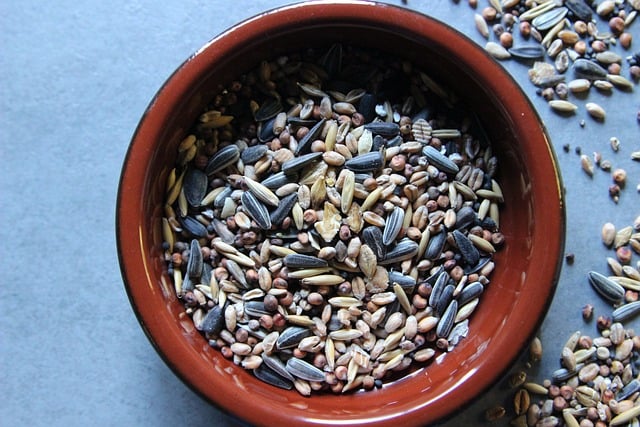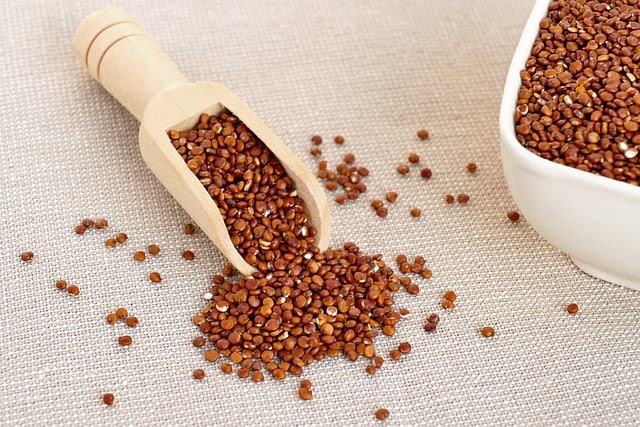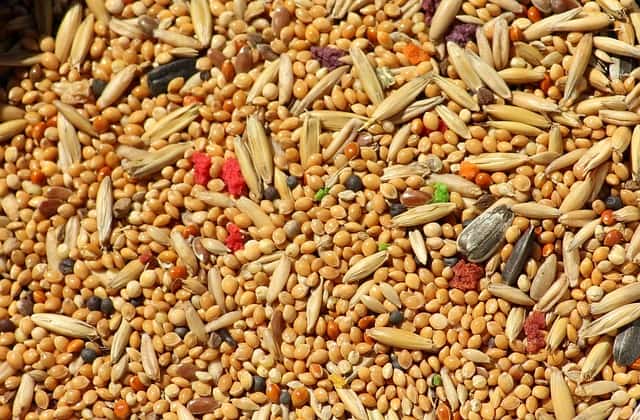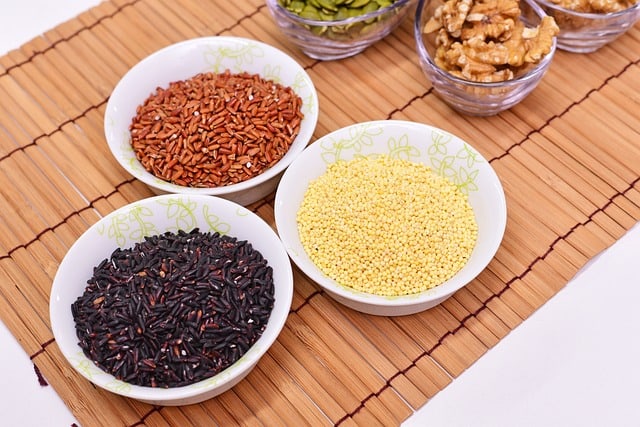Rich in Nutrients
Millet is a nutritional powerhouse, offering a range of essential nutrients. It contains significant amounts of magnesium, phosphorus, manganese, copper, and zinc. These minerals play crucial roles in various bodily functions, including bone health, enzyme activity, and immune system function. Millet also provides B-complex vitamins, such as niacin (B3), thiamine (B1), and riboflavin (B2).

Gluten-Free Grain
. Millet is inherently devoid of gluten, rendering it a suitable option for individuals with gluten sensitivities or celiac disease. This property allows individuals to enjoy grains without triggering adverse reactions associated with gluten consumption.
Heart Health
The magnesium in millet is particularly beneficial for heart health. Magnesium helps relax blood vessels, facilitating blood flow and contributing to lower blood pressure. Additionally, millet’s fiber content aids in reducing cholesterol levels, promoting overall cardiovascular well-being.
Balances Blood Sugar Levels
Millet has a low glycemic index, meaning it causes a slower and steadier rise in blood sugar levels. This characteristic is beneficial for individuals with diabetes or those looking to manage blood sugar levels, as it helps prevent sudden spikes and crashes.
Digestive Health
Millet is a rich source of dietary fiber, promoting digestive health. Fiber aids in preventing constipation, supports a healthy gut microbiome, and contributes to regular bowel movements. This can be especially beneficial for maintaining overall gastrointestinal well-being.
Antioxidant Properties
The antioxidants play a crucial role in counteracting free radicals, which are unstable molecules capable of inducing cellular damage and playing a role in the development of chronic illnesses.Consuming millet may thus support overall health by reducing oxidative stress.

Weight Management
The fiber content in millet provides a feeling of fullness, which can assist in weight management by reducing overall calorie intake. Additionally, the sustained energy release from complex carbohydrates in millet makes it a satisfying and nutritious addition to a weight-conscious diet.
Supports Bone Health
Millet contains essential minerals such as phosphorus and magnesium, which are vital for bone health. These minerals contribute to bone density and strength, playing a role in the prevention of conditions like osteoporosis.
Celiac-Friendly Grain
Millet’s gluten-free nature makes it a safe grain for those with celiac disease or gluten intolerance. It can be used as a substitute for gluten-containing grains in various recipes, allowing individuals to enjoy a diverse and balanced diet.

Rich in Protein
Millet serves as a valuable plant-based source of protein. Protein is essential for muscle maintenance, immune function, and overall cellular health. Including millet in the diet can be particularly beneficial for vegetarians and vegans looking to meet their protein requirements.
Potential for Anticancer Properties
Some studies suggest that the phenolic compounds and antioxidants found in millet may have potential anticancer properties. These compounds may help inhibit the growth of cancer cells and reduce the risk of certain types of cancer. However, further research is needed to fully understand this potential benefit.
Conclusion
Incorporating millet into your diet, whether through grains, flour, or as an ingredient in various dishes, can contribute to a well-rounded and nutritious eating plan. As with any food, moderation and balance are key to optimizing its health benefits.













